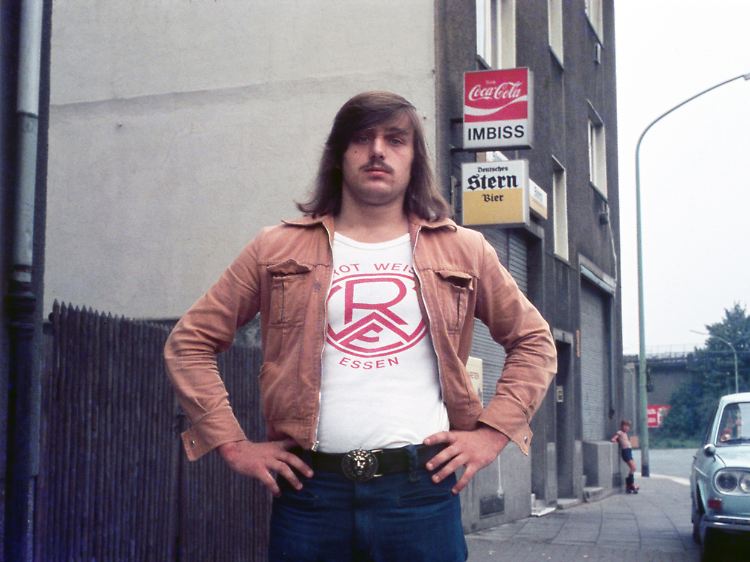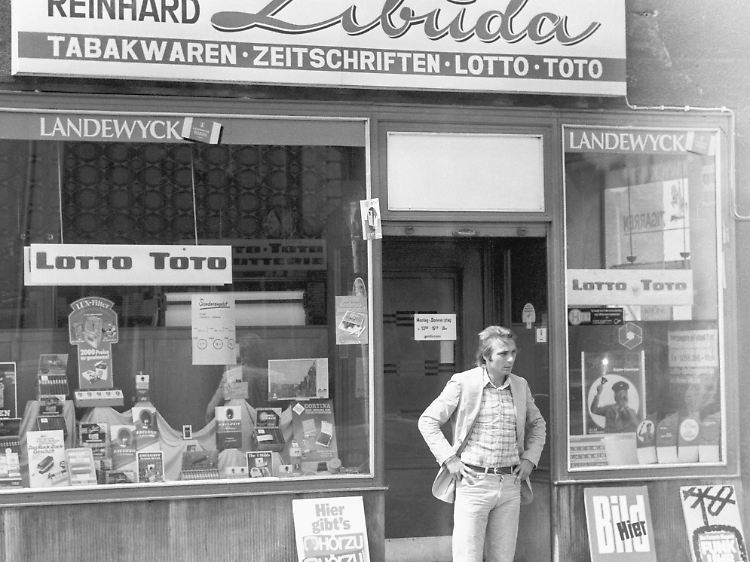The Ruhr area is one of the “most exciting soccer regions in Germany”. His stars have always been in great demand – and not only among the fans. Romy Schneider also liked one of them. The myth of district football is not only fascinating because of such wonderful stories.
“Boss” Rahn had just become German champion with his club Rot-Weiss Essen – the ladies and gentlemen from the film couldn’t really upset him. Even when Romy Schneider placed the leather ball coquettishly and yet very gently on his quiff, the world champion only closed his eyes briefly and thought about later, when “Sissi” and her mother had long since left and he was having a freshly tapped beer in his beloved ” Friesenstube” would sit.
But in a special way it was also nice that afternoon in August 1955 in Essen’s “Lichtburg” at the premiere of the film “Die Deutschmeister”. Helmut Rahn smiled at the cameras. All these famous people had come to his turf. His homeland. The Ruhr region.
Twenty years after the glamorous reception in Essen’s “Lichtburg”, a fan of Rot-Weiss Essen is standing in front of a pub. The year is 1976. The surroundings of the man with a flowing mane of hair and a mustache are gray on grey. Six years earlier, striker Klaus Fischer had moved to Gelsenkirchen from Zwiesel in Bavaria to play for FC Schalke 04. Fischer later said: “I hadn’t given much thought to the Ruhr area, although my mother had said to me: ‘If you go up there, you can no longer wear a white shirt.’
It was the time of structural change. Away from coal and steel. But that was of less interest to the RWE fan these days. His club worried him much more. A year later, his club was relegated from the first division – and has not been promoted to the Bundesliga to this day.
Stan Libuda is not a perfect businessman
Things weren’t going too well for the great Stan Libuda these days in the mid-1970s either – on and off the field. It is true that the Schalke legend had Ernst Kuzorra’s formerly thriving cigar shop with a lottery and pools acceptance point right on the corner of the old König-Wilhelm-Straße, where you had to turn off if you were a few meters further to the legendary Gelsenkirchen Glückauf- – but somehow this kind of business wasn’t really Stan’s cup of tea. People loved chatting with Kuzorra and handing in their lottery tickets on the side, but Libuda was rarely there in person.
It was the time when many ex-professionals suffered shipwreck with their booths and pubs and had to look for new fields of activity. Structural change also among former footballers.
Schalke joy and sorrow
Presented with over 450 motifs the Ruhr Museum together with the German Football Museum on the grounds of the UNESCO World Heritage Site Zollverein in Essen, a photo exhibition about “one of the most exciting football regions in Germany”, as the museum director Prof. Heinrich Theodor Grütter himself describes the Ruhr area.
The fascination of district football can be felt in the photographic journey through time. It is easy to see what incredible importance football had and still has in this region: “As a projection surface, as a place of refuge and longing, as a representative and motor of development, as the most important thing in the world, but mainly as a game in which myth and modernity meet reflect.”
The pictures at Schalke from the years 2001 and 2002 show how close joy and sorrow are in football. While after the gripping finish of the 2000/01 season, the fans of the “master of hearts” were crying on the lawn of the park stadium and manager Rudi Assauer memorable words (“If there is a football god, he is unjust. He died for me”), just one year later the royal blue supporters gather on the streets of Gelsenkirchen to celebrate the DFB Cup victory and wave to the team .
It was the day when Schalke manager Rudi Assauer was not paying attention for a moment and the trophy slipped out of his hands during the truck parade. The trophy hit the asphalt floor from a height of a few meters and was visibly tilted. Goldsmith Wilhelm Nagel had to replace a missing stone and extensively restore the cup. A costly affair for Assauer and the club.
But what a real guy from the Revier is, he doesn’t let such a thing irritate him. When asked by a journalist whether he would be more careful with the trophy if he were to win another title, Assauer answered unequivocally: “If it gets in the way again, it’ll break again.” A saying like the Ruhr area – even if Assauer was born in Saarland. But just like Klaus Fischer and many others, he never wanted to leave here later.

